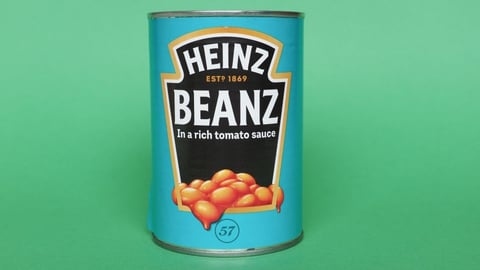Kraft Heinz Turnaround Cuts $2 Billion in Costs, Sells Off Cheese Business
The Kraft Heinz Company revealed the next step in its turnaround: an operating model centered on five pillars that cuts costs by $2 billion and increases marketing spend by 30%.
It also revealed plans to sell off some of its cheese businesses.
Under the new strategy, the company has transitioned its portfolio management from 55-plus individual categories to six consumer-driven platforms, each grouped around consumer needs: Taste Elevation, Easy Meals Made Better, Real Food Snacking, Fast Fresh Meals, Easy Indulgent Desserts and Flavorful Hydration.
It’s also developed an Ops Center to increase the visibility, integration and reaction of its supply chain. This in turn is expected to drive enterprise-wide alignment, streamline day-to-day processes, and deploy data analytics and technology toward continuous improvement.
As such, Kraft Heinz has identified about $2 billion that can be cut by 2024 in order to support the company’s growth initiatives.
CEO Miguel Patricio, who joined Kraft Heinz last year from AB InBev, expressed confidence the new operating model would combine with the No. 18 consumer goods company’s scale to return it to sustainable growth.
“We are placing the consumer at the center of everything we do, leveraging our greatest assets, strengthening our partnerships, generating fuel that funds growth investments like our 30% increase in marketing spend, and creating a clear path to rebuilding Kraft Heinz into the industry leader we have the potential to become,” he noted.
The company recently added several new leadership roles, including a new chief growth officer and a new president of U.S. sales. It’s structured this new operating model with five “primary elements”: Consumer Platforms, Ops Center, Partner Program, Fuel our Growth and People with Purpose.
The Partner Program will focus on strengthening and creating new customer partnerships through centralized development and revenue management teams, while Fuel Our Growth will re-invest savings to accelerate progress through agile portfolio management.
People with Purpose will leverage Kraft Heinz employees to bring its vision to life, as well as execute the company’s 2020 Environmental Social Governance (ESG) goals. ESG goals are integrated throughout the business, including metrics incorporated into Patricio’s performance goals, as well as those held by other key leadership members.
With the announcement, Kraft Heinz updated its growth targets of 1-2% organic growth, 2-3% adjusted EBITDA growth, and 4-6% adjusted EPS growth. It expects year-over-year Q3 organic net sales growth in the mid-single-digit range.
“We are committed to returning Kraft Heinz to consistent growth on both the top and bottom lines,” said Paulo Basilio, global CFO. “Leveraging our new platform structure to drive growth, our new productivity programs to deliver efficiencies, and our capital priorities to support reinvestment and accelerate our strategic plan will enable us to achieve our new long-term financial profile in the years ahead.”
Say Cheese
Kraft Heinz also announced it’s entered into an agreement to sell its Natural, Grated, Cultured and Specialty cheese businesses to a U.S. affiliate of Groupe Lactalis for $3.2 billion. The deal, which is expected to close in the first half of 2021, includes the Breakstone’s, Knudsen, Polly-O, Athenos, Hoffman’s, Cracker Barrel brands in the U.S., and the Cheez Whiz brand outside the U.S. and Canada.
It’s also partnering with Groupe Lactalis on a perpetual license for the Kraft and Velveeta brands. Kraft Heinz will retain the Philadelphia Cream Cheese, Kraft Singles, Velveeta Processed Cheese and Cheez Whiz Processed Cheese businesses in the U.S. and Canada; the Kraft, Velveeta and Cracker Barrel Mac & Cheese businesses worldwide; and the Kraft Sauces business worldwide.
The agreement, which affects about 750 employees, includes production facilities in Tulare, Calif.; Walton, N.Y.; and Wausau, Wis., and a distribution center in Weyauwega, Wis. These businesses contributed $1.8 billion to Kraft Heinz’s net sales in the 12 months ending June 27, 2020.
The deal is an example of the aforementioned agile portfolio management at work, said Patricio. “The transaction will enable us to build sustainable competitive advantage in businesses where we have stronger brand equity, greater growth prospects and can use our manufacturing scale and consumer-based platforms approach.”






